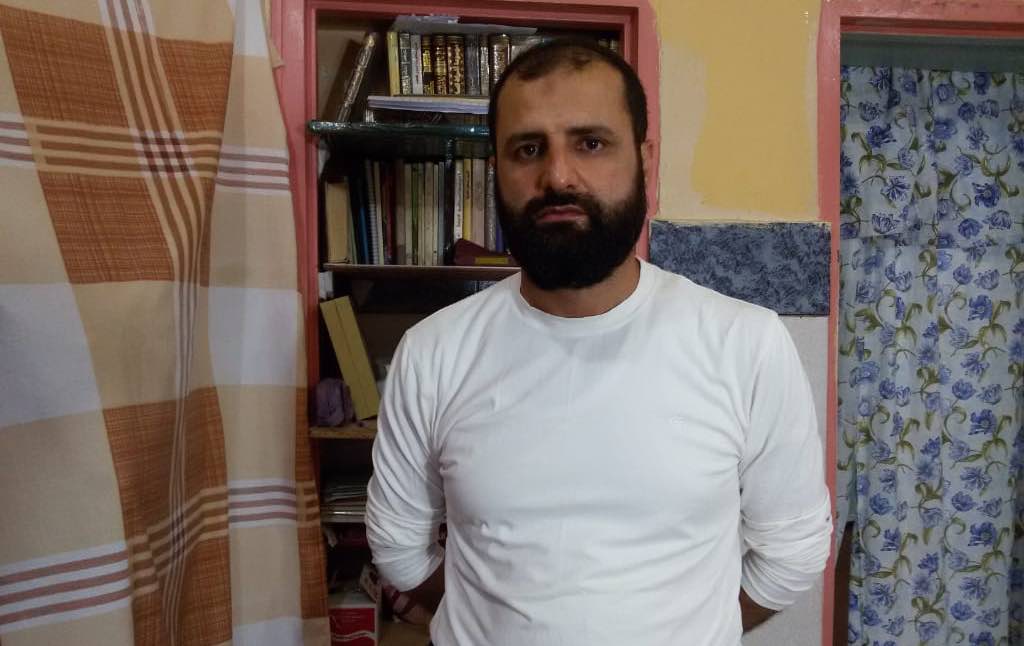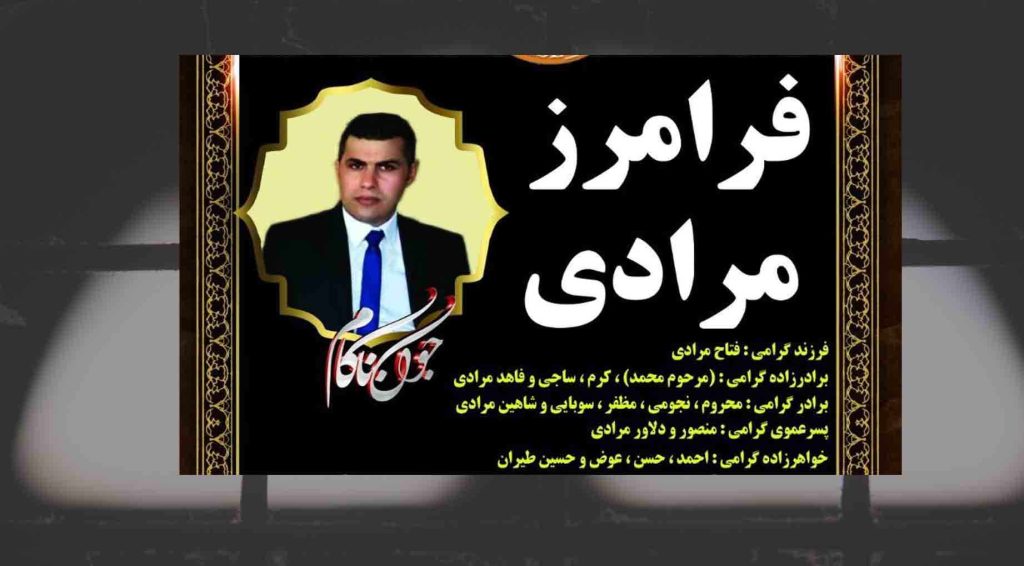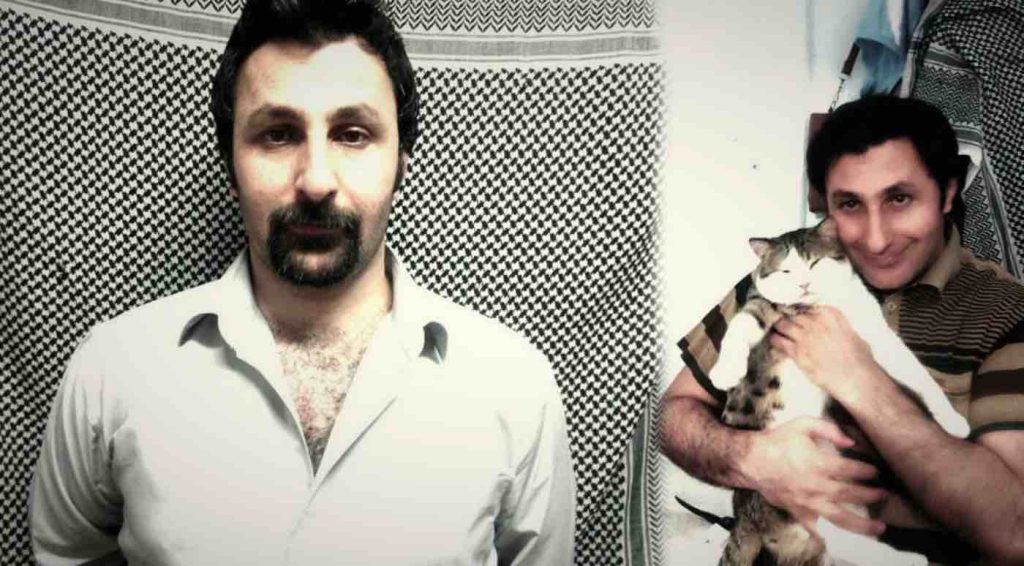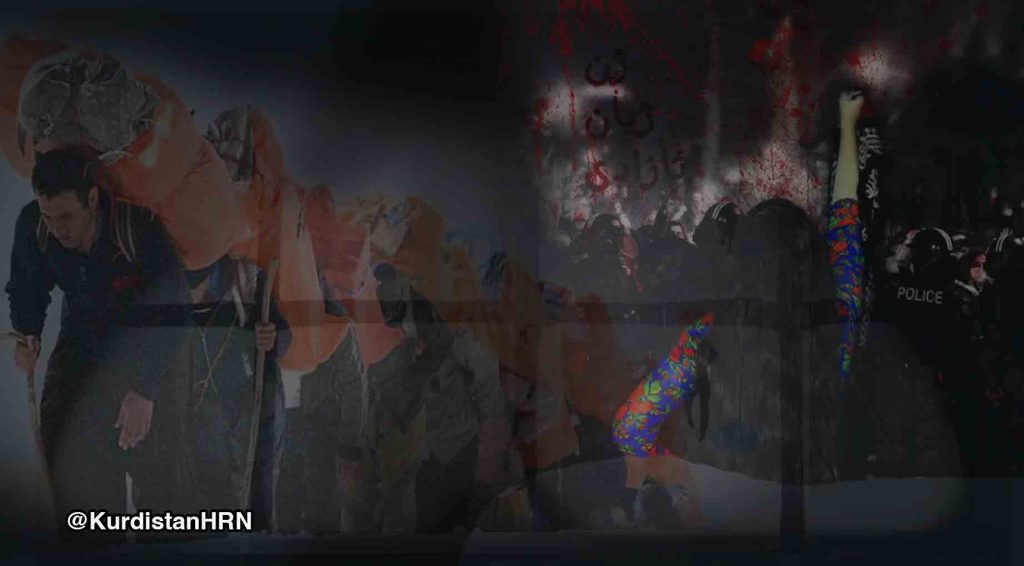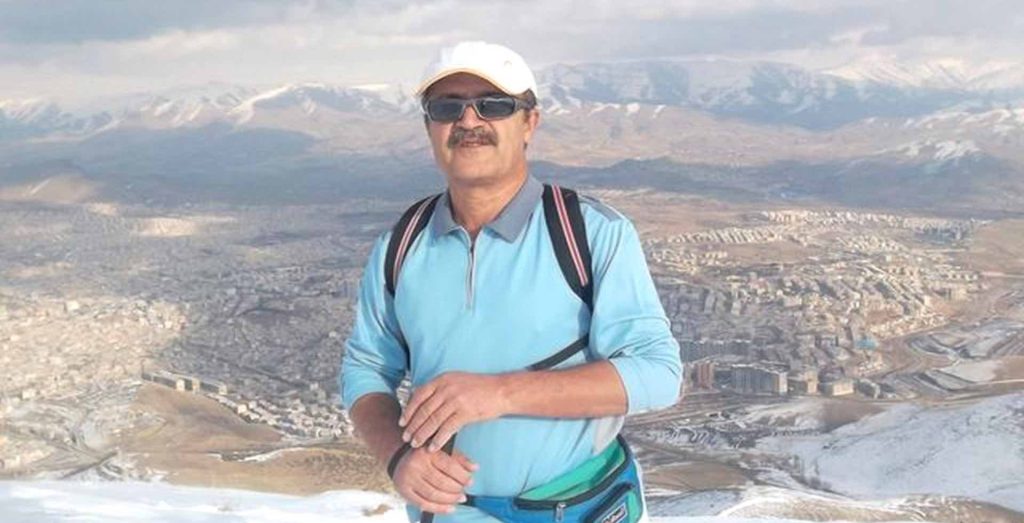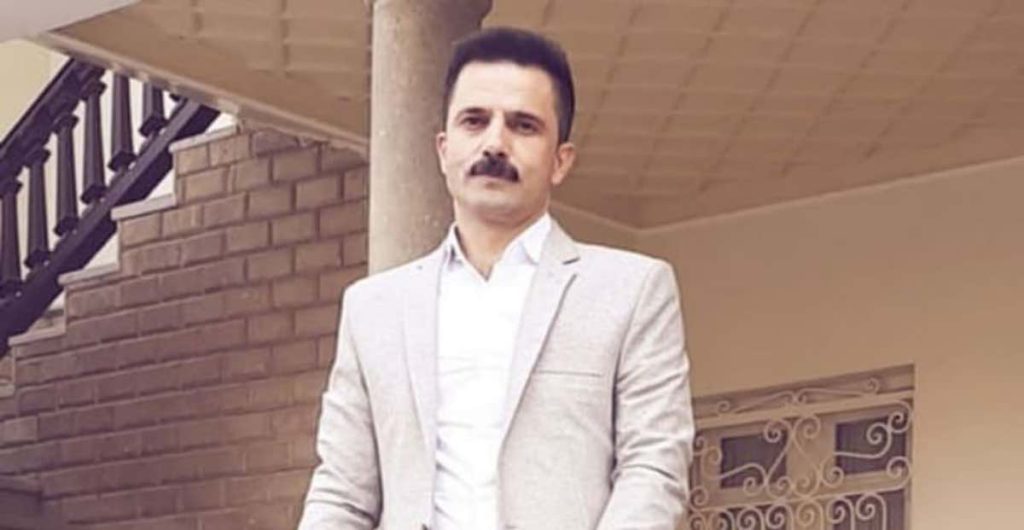Farhad Salimi, a 43-year-old Sunni Kurdish cleric and prisoner of conscience, was transferred to solitary confinement for execution in Ghezel Hesar Prison in Karaj, Alborz Province, on 21 January.
Salimi, who has spent 14 years in prison, was transferred to solitary confinement following the recent executions of three of his co-defendants, Ghassem Abasteh, Ayoub Karimi and Davoud Abdollahi, in Ghezel Hesar prison on 5 November, 29 November and 2 January respectively.
Abasteh, Karimi and Abdollahi were executed after 14 years of imprisonment in Ghezel Hesar Prison on charges of “spreading corruption on earth” (efsad-e fel arz), despite the efforts of their families and the opposition of human rights organisations.
Salimi’s transfer to solitary confinement therefore raises serious concerns about the risk of his imminent execution, given that his death sentence has been confirmed.
Salimi and his three other co-defendants Kamran Sheikheh, Khosrow Besharat and Anvar Khezri, have been on hunger strike since 3 January following the execution of their co-defendant Davoud Abdollahi and the threat of their own imminent execution.
All seven co-defendants were arrested by security forces in Saqqez, Kurdistan province, and Mahabad, West Azerbaijan province, between December 2009 and January 2010.
They were then taken to the Ministry of Intelligence detention centre in Orumiyeh, West Azerbaijan Province, where they were subjected to physical and psychological torture for several months in order to extract forced “confessions”.
After the interrogation phase in Orumiyeh, the seven prisoners of conscience were moved to Evin Prison in Tehran, where they endured six months of solitary confinement and further questioning in Wards 240 and 209.
They were later transferred to Rajai Shahr Prison in Karaj on 20 March 2012.
In March 2016, the trial of these seven prisoners on charges such as “acting against national security”, “propaganda against the state”, “membership in Salafi groups”, and “spreading corruption on earth” was held in Branch 28 of the Islamic Revolutionary Court in Tehran, presided over by Judge Moghiseh.
On 25 May 2016, they were officially informed of the death sentence. After the lawyer objected to the issued verdict, the case was referred to the Supreme Court. In Early 2017, this verdict was overturned.
After the referral of this case to Branch 15 of the Islamic Revolutionary Court in Tehran, presided over by Judge Salavati, in June 2018, these seven prisoners were again sentenced to death on charges of “spreading corruption on earth.”
Following the lawyer’s objection to the issued verdict, the case was referred to Branch 41 of the Supreme Court, and in February 2020, this verdict was upheld.
In August 2019, Farhad Salimi wrote an open letter to Ebrahim Raisi, the then-head of the judiciary, describing his situation during detention, the judicial process, and the issuance of two death sentences.
Salimi wrote: “I am Farhad Salimi, the son of Majid. I am a Sunni cleric from Saqqez, Kurdistan Province. I was arrested by the Ministry of Intelligence on 29 January 2010, and have been detained ever since without any clarification of the charges against me. During these 10 years of unlawful detention, I have not been informed of any extension of my detention, and at no stage of the investigation and trial process have they been able to prove any of the charges against me on the basis of the fourfold evidence. According to Article 32 of the Constitution, citizens have the right to be free from arbitrary arrest and search without a warrant. All threats, pressure and restrictions on the families and relatives of those accused and detained are prohibited”.
He continued: “Are not a decade of changing places of detention and prisons, unusual, illegal and illogical extensions of the trial, pressure to dismiss my lawyer on groundless pretexts, coercion to obtain false confessions, making the decision on my fate dependent on the acceptance of false and groundless accusations, the ten years of anticipation of my family, the pain of losing a father and close relatives during the period of detention, the growth of my children in my absence, building their future in dreams and wishes and longing for it, the tears and sorrow of my mother, wife and children for a decade, examples of psychological and mental torture for forced confessions under pressure?”
In August 2023, the seven prisoners were transferred to Ghezel Hesar Prison after the closure and evacuation of Rajai Shahr Prison in Karaj.

